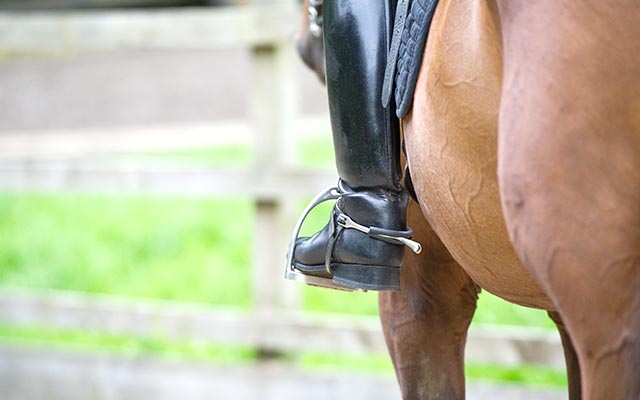The use or misuse of leadership and dominance in equine training are “man-made concepts that should not form the basis of human-horse interactions”, according to the International Society for Equitation Science (ISES).
The group has released a “position statement” stating such concepts may “jeopardise the creation of a harmonious relationship with the horse and may compromise its welfare”.
The statement disputes the theory that the person handling a horse must be in an “alpha” or dominant position, stating that horses “interact with each other mainly on a bilateral (one-to-one) level, and do not possess the cognitive abilities to form the abstract concepts of hierarchy and rank”.
ISES honorary fellow Jan Ladewig, who was instrumental in developing the statement, said: “Horses have many talents, such as surviving even under harsh conditions. They remember where food, water and shelter are available, and they remember their social companions, as well as numerous other things.
“There is no indication, however, they are able to handle complex issues that demand cognitive abilities similar to the ones we possess. They are not good at generalising and abstract thinking is not part of their cognitive abilities.
“The better we understand the way their brain works and the more we accept these limitations when we handle them, the better we will be able to establish a harmonious relationship with them.”
The statement looks at social behaviour, of wild and domestic horses, such as competition for resources, which can lead to aggression and submission.
“It suggests the man-made concepts of a dominance hierarchy, alpha position and leadership misinterpret and, inadvertently, oversimplify such complex and dynamic social organisation,” said an ISES spokesman.
The statement suggests that relying on concepts of dominance and leadership could lead to training methods which compromise equine welfare, adding that attempting to dominate horses “often encourages and justifies the application of punishment and trigger fear and avoidance responses”.
Questioning evidence
ISES honorary president Camie Heleski says: “Many of us have, over many years, heard statements such as: ‘You must be the alpha’. ‘You need to be sure the horse respects you’, but have we ever really questioned the evidence behind them?
“Do horses actually have a complex dominance hierarchy that is set, regardless of the resources in question or the individual horse’s motivation at that moment? Does the research actually support the belief that horses look at the human handler/trainer as a two-legged leader of their herd?

Anger over Parelli display at Royal Festival of the Horse
A furore has broken out over Pat Parelli’s

Natural horsemanship: ‘just good, common sense horsemanship’ or something else?

Monty Roberts: ‘There’s no such thing as natural horsemanship’
“And, above all, is it possible that following such statements has actually reduced horse welfare – and human safety – by overestimating the horse’s perspective on these concepts?”
ISES is “imploring” riders and trainers to “remove concepts of dominance and leadership” form their interaction with horses and learn more about horses’ natural behaviour, while ensuring all training is “calm, clear and consistent”.





